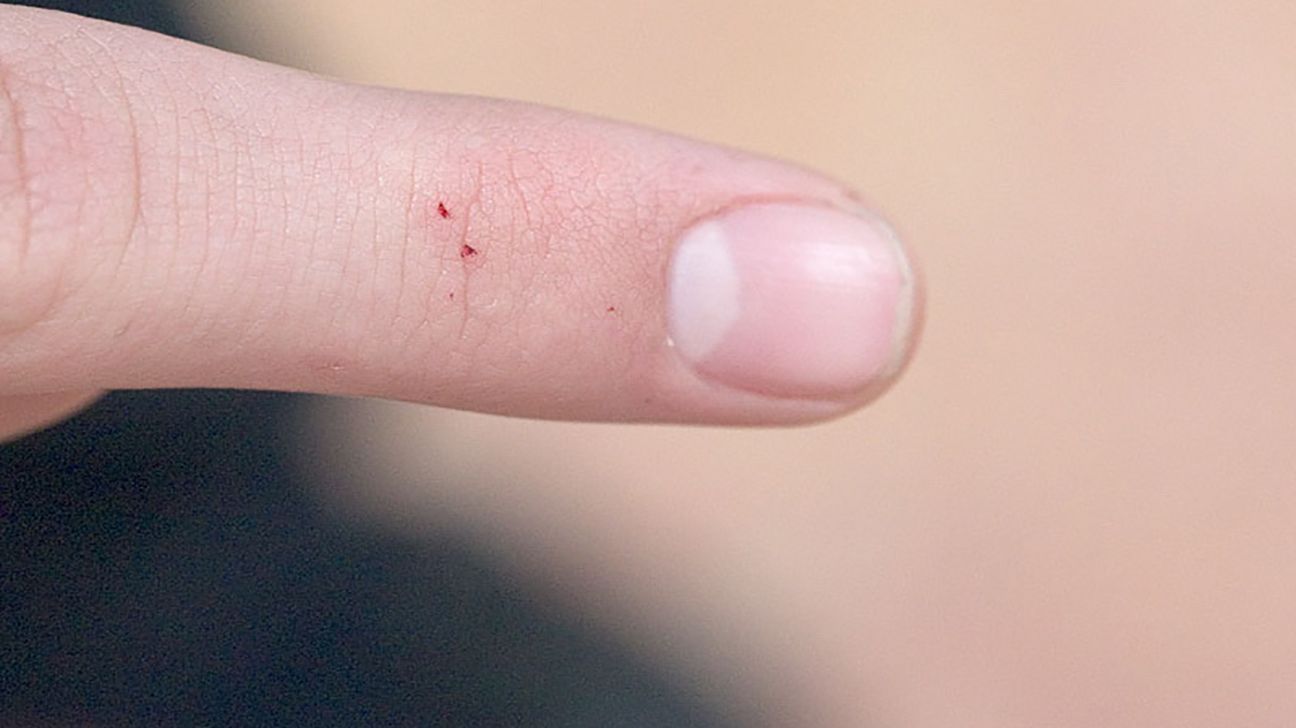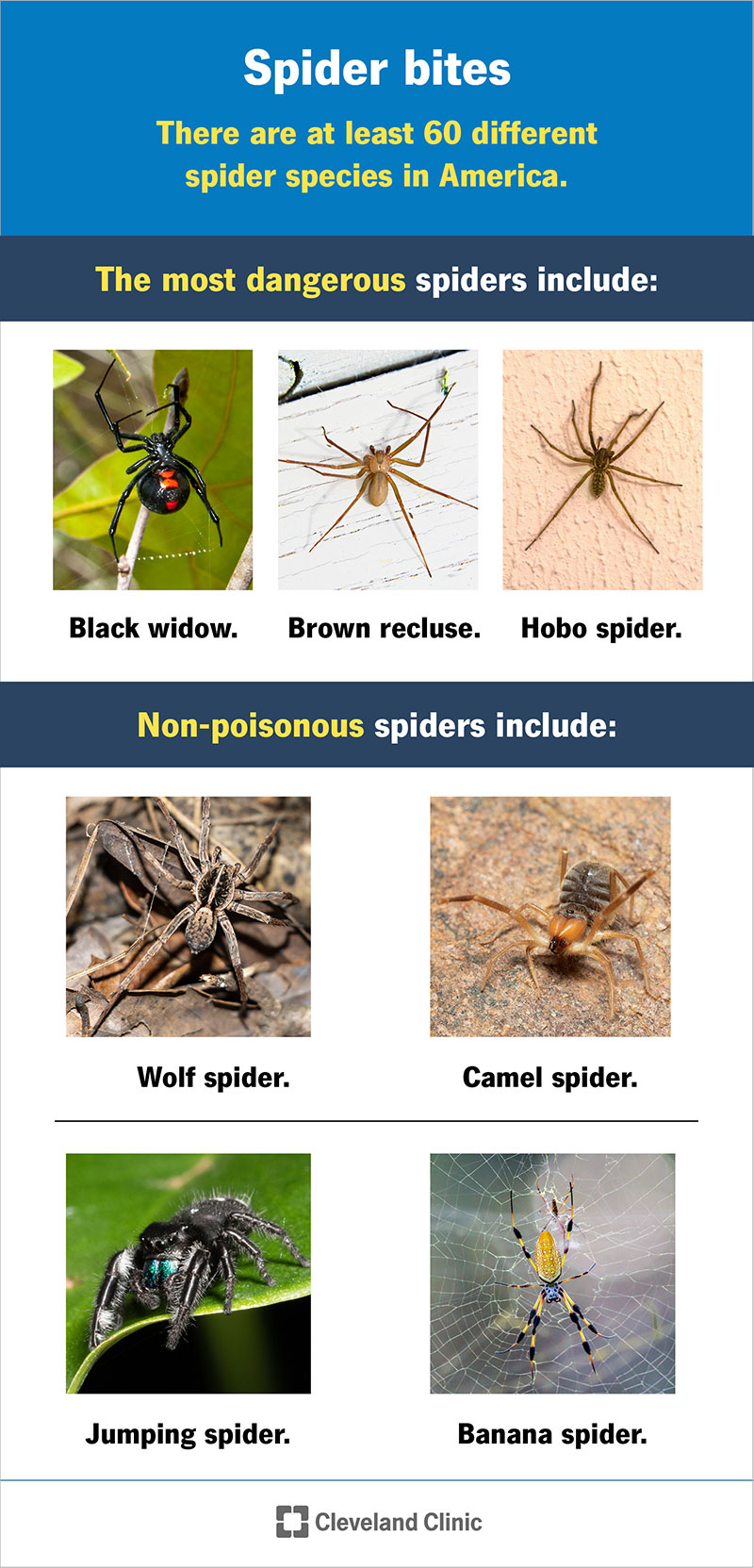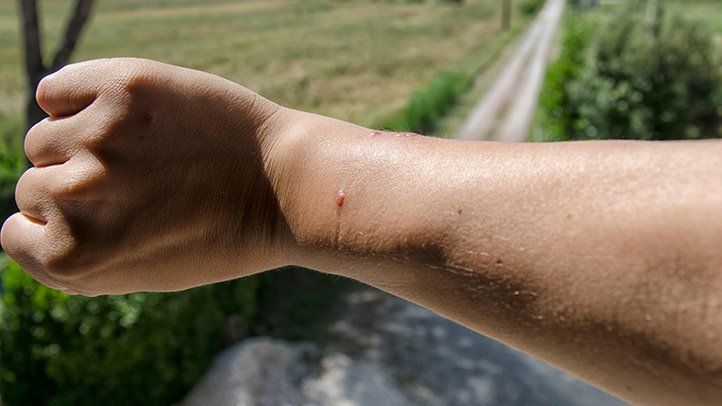After getting a spider bite, clean the area with soap and water, apply a cold compress, and monitor for any signs of infection. Spider bites can cause pain, redness, swelling, and itching, so it’s important to keep the area clean and watch for any worsening symptoms.
If you experience severe symptoms like difficulty breathing or chest pain, seek medical attention immediately. Remember to stay calm and seek professional help if needed, as some spider bites can be serious and require medical treatment. In this blog post, we will explore the steps to take after getting a spider bite to ensure proper care and recovery.

Credit: www.healthline.com
Initial Response To A Spider Bite
After getting a spider bite, it’s crucial to take immediate action to minimize the risk of complications. The initial response to a spider bite can make a significant difference in the recovery process. Here are the essential steps to follow in the initial response to a spider bite:
Identify The Spider
Try to identify the spider, if possible. This can help medical professionals determine the appropriate treatment. Look for any distinct markings or characteristics that can assist in identifying the spider species.
Clean The Bite Area
Thoroughly clean the bite area with mild soap and water to reduce the risk of infection. Use a clean cloth or sterile bandage to gently pat the area dry. Avoid using harsh chemicals or strong antiseptics as they may irritate the skin further.
Reducing Pain And Swelling
To alleviate pain and swelling after a spider bite, apply a cold compress and elevate the affected area. Taking an over-the-counter pain reliever can also help reduce discomfort and inflammation. Remember to seek medical attention if symptoms worsen or if you have an allergic reaction.
Reducing Pain and Swelling is crucial after getting a spider bite. Immediate steps must be taken to alleviate the discomfort. Here are some tips to help you with the same.Apply Ice Packs
Applying ice packs is one of the most effective ways to reduce pain and swelling. Place a clean cloth over the bite area and apply an ice pack for 10-15 minutes. Repeat the process every few hours to get relief from pain and swelling.Elevate The Affected Limb
Elevating the affected limb can also help reduce swelling and pain. Keep the affected area elevated above the level of your heart to improve blood circulation. This will help decrease the swelling and alleviate the discomfort.In addition to these steps, it is also important to keep the bite area clean and avoid scratching the affected area. Scratching can lead to infection and further complications. If the pain and swelling persist or if you experience any other symptoms such as fever, nausea or vomiting, seek medical attention immediately.Taking these steps can help reduce the discomfort and speed up the healing process. Remember, seeking medical attention is crucial if the symptoms persist or worsen.When To Seek Medical Attention
After getting a spider bite, it is important to know when to seek medical attention. If the bite becomes red, swollen, or starts to cause severe pain or other concerning symptoms, it is recommended to consult a healthcare professional for proper evaluation and treatment.
Signs Of Allergic Reactions
Symptoms Of Venomous Bites
If you experience severe pain or swelling, seek immediate medical help. Notice any difficulty breathing or swallowing, head straight to the ER. Persistent redness, warmth, or drainage around the bite warrants medical attention. Fever, chills, or excessive sweating after a spider bite may indicate infection. If the bite area becomes increasingly painful or starts oozing pus, see a doctor. Sudden dizziness, nausea, or a rapid heartbeat are signs to seek medical help. If you develop a rash, hives, or itching all over the body, consult a healthcare provider. Any signs of systemic illness like fever or body aches require medical assessment.Home Remedies For Non-venomous Bites
After getting a spider bite, there are several home remedies you can try to alleviate the pain and swelling. Applying a cold compress, taking over-the-counter pain relievers, and elevating the affected area can all help. Additionally, using essential oils such as lavender or tea tree oil may also provide relief.
Natural Anti-inflammatories
After getting a spider bite, it is important to monitor the affected area closely. For non-venomous bites, home remedies can be used to alleviate pain and reduce swelling. Natural anti-inflammatories such as aloe vera gel, tea tree oil, and witch hazel can be applied directly to the bite. These remedies have anti-inflammatory properties that can help reduce redness and swelling. Additionally, they have antibacterial properties that can help prevent infection.Healing Ointments And Creams
Another effective home remedy for non-venomous spider bites is the use of healing ointments and creams. These can be purchased over-the-counter or made at home using natural ingredients. Calamine lotion, hydrocortisone cream, and baking soda paste are all effective in reducing pain and swelling. These remedies help to soothe the affected area, reduce itching, and promote healing.In conclusion, it is important to take quick action after getting a spider bite. For non-venomous bites, home remedies can be used to reduce pain and swelling. Natural anti-inflammatories such as aloe vera gel, tea tree oil, and witch hazel can help reduce redness and swelling. Healing ointments and creams such as calamine lotion, hydrocortisone cream, and baking soda paste can help soothe the affected area and promote healing. Remember, if the bite is venomous or if you experience severe symptoms, seek medical attention immediately.Medical Treatments For Spider Bites
After getting a spider bite, promptly clean the area with soap and water. Apply a cold compress and elevate the affected limb to reduce swelling. Seek medical attention for severe symptoms or if you suspect a venomous spider bite. Remember to monitor for any signs of infection.
Medical Treatments for Spider BitesSpider bites can range from mild irritation to severe reactions requiring medical attention. In some cases, medical treatments may be necessary to alleviate symptoms and prevent complications. Here are two common medical treatments for spider bites:Antivenom For Dangerous Species
If you have been bitten by a spider known to be dangerous or venomous, such as a black widow or brown recluse, seeking medical attention immediately is crucial. These species can cause severe symptoms and complications that may require antivenom treatment.Antivenom is a specific antidote that counteracts the venom’s effects. It is typically administered through an intravenous (IV) infusion. The antivenom helps neutralize the toxins, reduce pain and swelling, and prevent further damage to the body.Antibiotics For Secondary Infections
Spider bites can sometimes lead to secondary infections if the wound is not properly cleaned or if bacteria enters the bite site. In such cases, antibiotics may be prescribed to treat the infection and prevent it from spreading.The choice of antibiotics depends on the type of infection and the individual’s medical history. Commonly prescribed antibiotics for spider bite infections include penicillin, erythromycin, or cephalosporins. These medications help eliminate the infection-causing bacteria, alleviate symptoms, and promote healing.It’s important to note that not all spider bites require medical treatment. Most spider bites can be managed with basic first aid, such as cleaning the wound, applying a cold compress, and taking over-the-counter pain relievers. However, if you experience severe symptoms, such as difficulty breathing, chest pain, or rapidly spreading swelling, seek medical attention immediately.Remember, the information provided here is for informational purposes only and should not substitute professional medical advice. Consult a healthcare professional for an accurate diagnosis and appropriate treatment options for spider bites.:max_bytes(150000):strip_icc()/spiderbitefinal-5a2ff7229e94270037bb4efa.png)
Credit: www.verywellhealth.com
Preventing Infection
After getting a spider bite, it’s important to clean the affected area with soap and water. Applying a cool compress can also help reduce swelling and pain. If symptoms worsen or you develop a fever, seek medical attention immediately.
Proper Wound Care
Wash bite area with mild soap and water.
Monitoring For Signs Of Infection
Check for redness and swelling around the bite.
Observation And Follow-up
Observation and follow-up are crucial after getting a spider bite. Proper monitoring and documentation of the healing process are essential to track any changes or complications. It’s important to know when to return to the doctor for further evaluation.
Documenting The Healing Process
Documenting the healing process involves keeping track of the bite area’s size, color, and any changes in pain or swelling. Take pictures to visually monitor the progression and note any unusual symptoms or allergic reactions that may occur.
When To Return To The Doctor
If the bite shows signs of infection, such as increased redness, warmth, or discharge, or if there are systemic symptoms like fever, chills, or nausea, it’s essential to seek medical attention promptly. Additionally, if there’s no improvement within a few days or if the symptoms worsen, a follow-up visit to the doctor is necessary.

Credit: my.clevelandclinic.org
Prevention Tips For The Future
Avoiding Spider Habitats
Keep your living spaces tidy and clutter-free to minimize potential spider habitats. Seal cracks and crevices in walls, floors, and foundations to prevent spider entry. Regularly clean outdoor areas, such as woodpiles and garden debris, to deter spiders from nesting.
Protective Clothing And Gear
When venturing into spider-prone areas, wear long sleeves, gloves, and closed-toe shoes to minimize skin exposure. Utilize insect repellent on clothing and gear to further deter spiders. Consider wearing a wide-brimmed hat and a face mask for added protection.
Frequently Asked Questions
How Do I Know If A Spider Bite Is Dangerous?
Spider bites can range from mild irritation to severe reactions. Look for symptoms like redness, swelling, pain, and itching. Seek medical attention if you experience difficulty breathing, muscle spasms, or a spreading rash.
What Should I Do Immediately After Getting A Spider Bite?
Clean the bite with soap and water, apply a cold compress to reduce swelling, and elevate the affected area. Keep an eye on the bite for any signs of infection and seek medical help if symptoms worsen.
Can Spider Bites Be Treated At Home?
Minor spider bites can often be treated at home by applying an over-the-counter antiseptic cream and taking over-the-counter pain medication. However, it’s important to monitor the bite for any signs of infection and seek medical attention if symptoms persist.
When Should I Seek Medical Help For A Spider Bite?
Seek medical help if the bite becomes increasingly painful, swollen, or red, or if you develop severe symptoms such as difficulty breathing, muscle cramps, or a spreading rash. It’s better to be safe than sorry when it comes to spider bites.
Conclusion
It is crucial to take immediate action after getting a spider bite. By following the steps mentioned in this blog post, you can alleviate symptoms, prevent infection, and promote faster healing. Remember to clean the wound, apply a cold compress, and seek medical attention if necessary.
Keeping an eye on any unusual symptoms or allergic reactions is also essential. Stay informed, stay safe, and take care of your health.
Related posts:

I’m MD Tanvir, and I bring years of expertise gained from working closely with pest control companies to the forefront. My journey in the industry has inspired me to launch Bug Battler, a platform aimed at equipping people with the know-how to combat pests autonomously. Through Bug Battler, I aim to empower individuals with practical insights to tackle pest infestations effectively.

